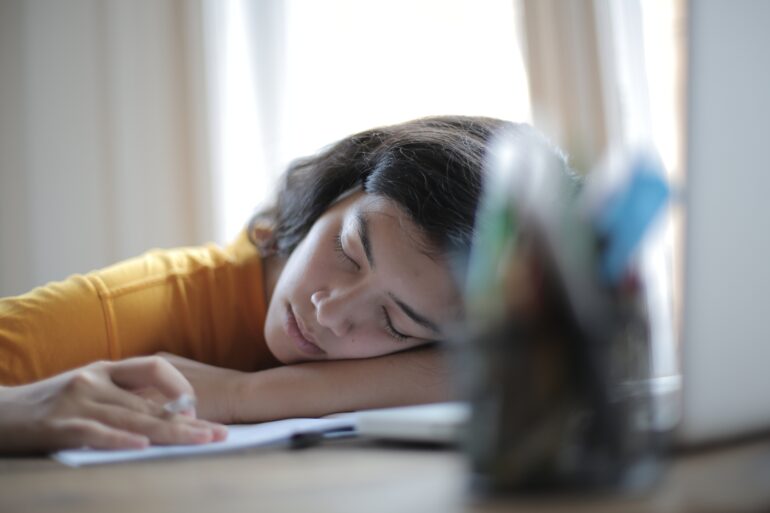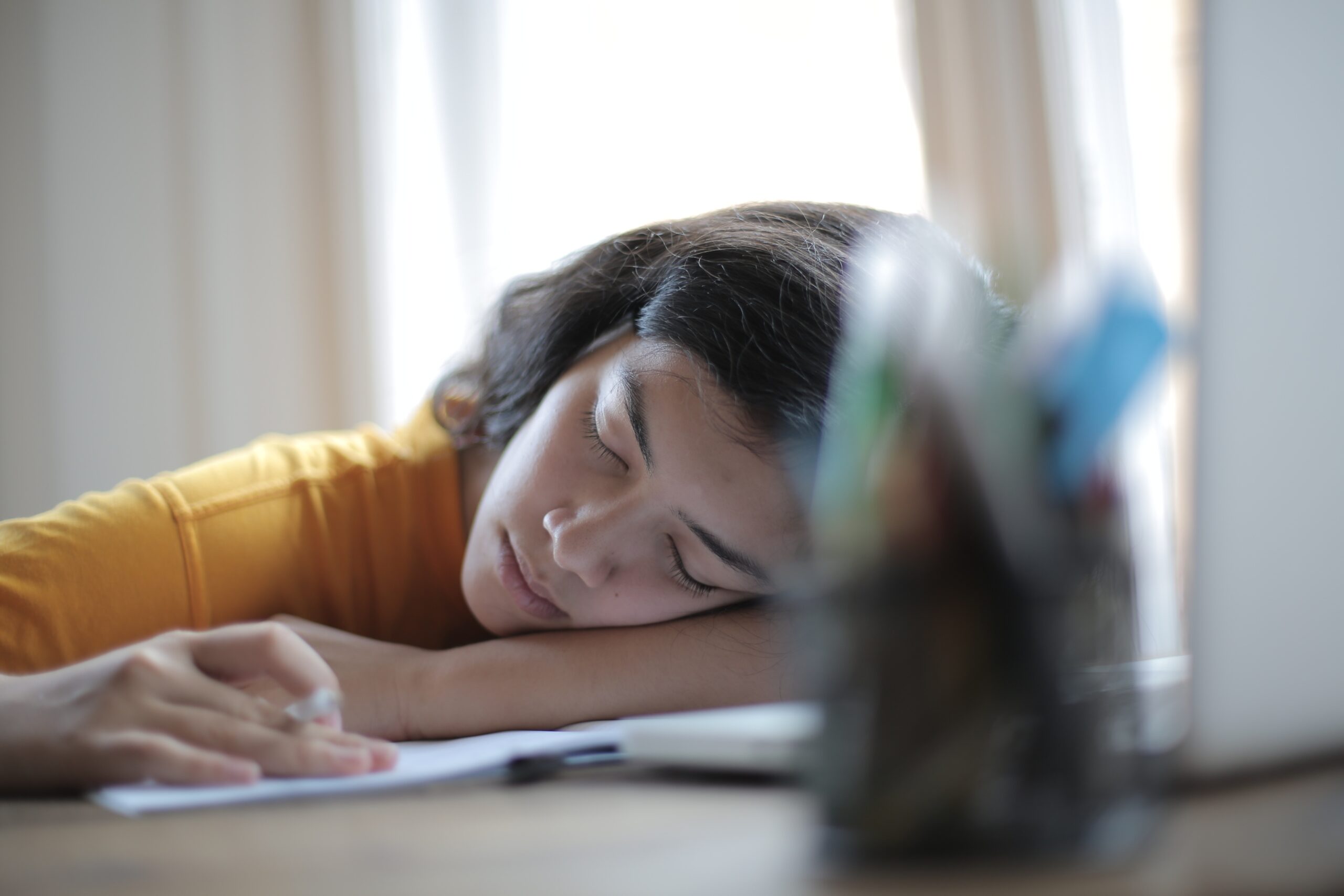
The spread of COVID-19 has disrupted sleep patterns because of the fears of the pandemic and isolation, experts say. (Andrea Piacquadio/Pexels)
Gbekele Adenekan, a fourth-year communications studies student at York University noticed she sleeps differently since the pandemic began.
“I feel like I get the hours, but I don’t get that restful sleep,” she said.
“Sometimes it’s very hard for me to sleep. I know my body wants to sleep but my mind is like ‘you are going to be awake’,” Adenekan said.
She is one of many students in Canada who have noticed sleep disturbances because of the COVID-19 pandemic and lockdowns.

Gbekele Adenekan stares at the camera as she talks about her sleep pattern through Zoom on Feb. 6 in Toronto. (Tina Nalova Ikome-Likambi)
Experts refer to these sleep disturbances experienced by people of all ages as “COVID-somnia”.
Dr. Frances Chung, with the Department of Anesthesiology and Pain Medicine at the University of Toronto, said COVID-19 influences sleep because of the fears of the pandemic and isolation.
Adenekan said the uncertainty of the pandemic has made her anxious.
“It just feels a bit exhausting because my sleep area is also my work area. So, it just becomes a blur,” she said.
Adenekan said sleep is important for students because of the constant workload.
“It’s very crucial. It’s absolutely crucial because I can’t do anything without proper sleep,” she said.
Adenekan said she was able to find a routine that works for studies and sleep.
“I take a run and when I come back, I take a nice cool shower and once I am on my bed, I just pass out,” she said.

Brock University student Nabiha Sabiree said she developed a routine to prepare to go sleep. (Tina Nalova Ikome-Likambi)
Brock University student Nabiha Sabiree said she also has a sleep routine.
“I usually use my essential oil diffuser, I take a nice long shower, face mask, and then I play some music. It’s just a really relaxing setup and I go to bed after,” she said.
The sixth-year concurrent education student said she manages her time better now compared to when the pandemic hit.
“When it started, I lost a lot of sleep. I wasn’t sleeping as much,” Sabiree said. “I was waking up at early times going to bed super late.”
She said the lack of sleep causes exhaustion and irritability.
Chung said people who do not have enough sleep have increased irritability, lack of attention, daytime sleepiness, and daytime fatigue.
“Young people, when studying, need to have adequate sleep and also have good sleep patterns,” she said.
Chung said students and young people should have a consistent sleep pattern.
“You have a good sleep pattern when you have a consistent time when you go to bed and when you wake up. You actually feel really refreshed and restored,” she said.
“It’s very easy to have deterioration in your health. You can have anxiety, you can have depression, and you do not go to sleep because you’re worried, and you have fear,” she said.
Chung said students need to have a goal, exercise and reach out to people to help raise their spirits.
Adenekan said fellow students need to avoid being anxious.
“Don’t let school be another thing to stress about. Just have hope that we’re going to be coming out of this,” she said.

